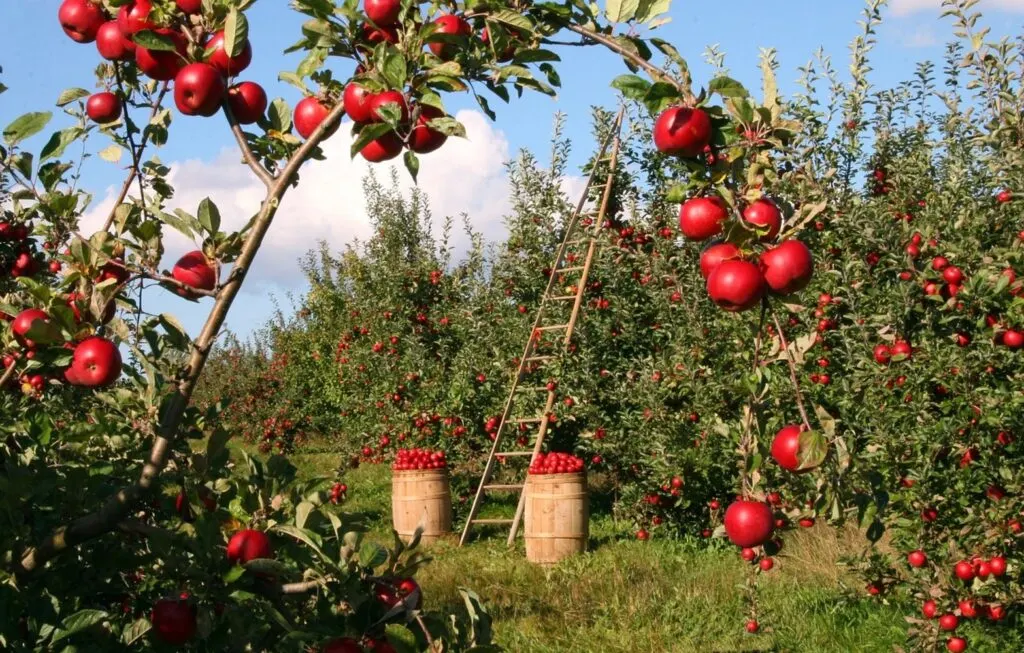In a world where most things are artificial.
Eating organically has grown in popularity over the past few years.
Increasing your intake of organic foods has been shown to positively impact the environment and is healthier for you personally too.

What Are Organic Foods?
When you’re walking around your local grocery store, it is common to now see certain sections labelled “organic”, but what does this mean exactly?
Organic is used to describe the way farmers grow and process agricultural produce – and is generally considered to be of higher quality.
For example, eggs can be produced in a variety of ways and environments from barn laid eggs to free-range eggs and everything in between.
There are certain standards and regulations that have to be met to enable a product to be labelled as organic.
What Are The Standards For Organic Food?
For fruit and vegetables, it’s normally about the soil quality; for meat, it’s about the living conditions of the animals and how they’re fed.
Some of the following practices are banned in organic farming:
- Synthetic fertilizers or sewage runoff are used to add nutrients to the soil. Instead, natural fertilizers, such as farm animal manure, should be used.
- Synthetic pesticides to keep away crop-eating pests. Instead, other natural predators of a pest should be used.
- Genetic engineering to improve disease and pest resistance.
- Using radiation to get rid of disease.
Other practices that organic farmers have to use include:
- Rotating crops to improve soil quality and prevent disease cycles.
- Covering crops when the land isn’t in use and ploughing the land to improve soil quality.
- Using mulch to control weeds
- Giving animals healthy living conditions and access to the outside
- Animals are given vaccines to protect against disease
- Organic foods used to feed animals
The Benefits
These practices have many benefits for both people and also for the environment.
More Environmentally-Friendly
Organic farming aims to improve soil quality, which is crucial in contributing to diversifying an area and improving water quality.
Because of the decreased use of certain pesticides and fertilizers, there is less pollution of soils and water, as well as causing less harm to other wildlife that can also be affected by these chemicals.
Non-organic farming has been criticised for using these harmful substances that can cause a loss in biodiversity and increased soil erosion; however, there is a high far higher yield when conventional farming methods are used.

Animal Welfare
Treating animals ethically and allowing them free-range to graze outside is fundamental for an animal’s well-being.
This means animals can live out their lives in a relatively similar way to as if they were in the wild; they can graze and carry out their natural behaviours more easily.
Not being subjected to genetic modifications and eating better quality food is much better for them too.
Not only that, but wildlife can flourish too because organic farmers encourage biodiversity on their land due to the reduced use of pesticides.
More Nutritional
Organic products have been shown to contain more beneficial vitamins, minerals, and enzymes that can aid in body functions and health.
- One study has shown that there was an increased level of omega-3 fatty acids in dairy and meat product when animals foraged on organic foods rich in omega-3s. Omega-3 fatty acids have been shown to prevent heart disease and stroke, as well as other diseases such as cancer.
- A study on organically grown carrots, spinach, lettuce, potato, and cabbage showed there was more Vitamin C (protects cells), Iron (for growth and development), Magnesium (supports muscle and nerve function), and Phosphorus (aids in how the body uses carbohydrates and fats) and fewer nitrates than conventionally grown ones. Nitrates can affect how our body carries oxygen, so the fewer the better, otherwise an individual may experience fatigue and weakness.
- A 6-year study found that organic onions had a 20% higher antioxidant content. Previous studies had shown there may not be a large difference, but these studies may have been too short to cater to particular variables, such as weather and soil quality. Antioxidants protect against cell damage from free radicals (unstable molecules that are linked to ageing and illnesses)
These nutrients and benefits can even transfer into organic skin care products too!
Reduced Pesticide Residue
Although organic farms don’t tend to use synthetic pesticides, there can still be some residue on products from airborne particles from neighbouring conventional farms.
Exposing humans to large amounts of pesticides can be toxic and have minor health impacts, so reducing the amount used is very important.
Pesticides that are used by organic farmers are naturally produced and are approved by an organic production organisation, who have carried out risk assessments on such substances.

Reduced Antibiotic Residue
In a study testing milk samples, 60% of conventionally farmed milk was shown to contain antibiotics, whereas organic milk did not contain any.
Antibiotics are used to treat disease in farm animals, but this is not allowed in organic products (where they prevent disease through the use of vaccinations).
The use of antibiotics can transfer into the final food product, which can have many health implications, such as the development of allergies, and negative effects on the liver, kidneys, and immune system.
Fresher
Organic foods do not contain preservatives, which means that it is normally fresher when you see them in the grocery store.
This often means that it is grown more locally (because it doesn’t have time to travel as far) which is also better for the environment.
You’re also more likely to be eating foods that are in season, which is naturally good for you because our bodies are adapted to the natural cycle of foods, and the natural nutrients they provide, throughout the different seasons.
All in all, organically produced foods reduce the pollution of water, air, and soil through the use of more natural pesticides and disease prevention measures.
This is better for the environment and for the welfare of the farm animals (and wildlife) because biodiversity is increased.
Consuming organic foods has great nutritional value and contain less of harmful substances, such as pesticides and antibiotics.